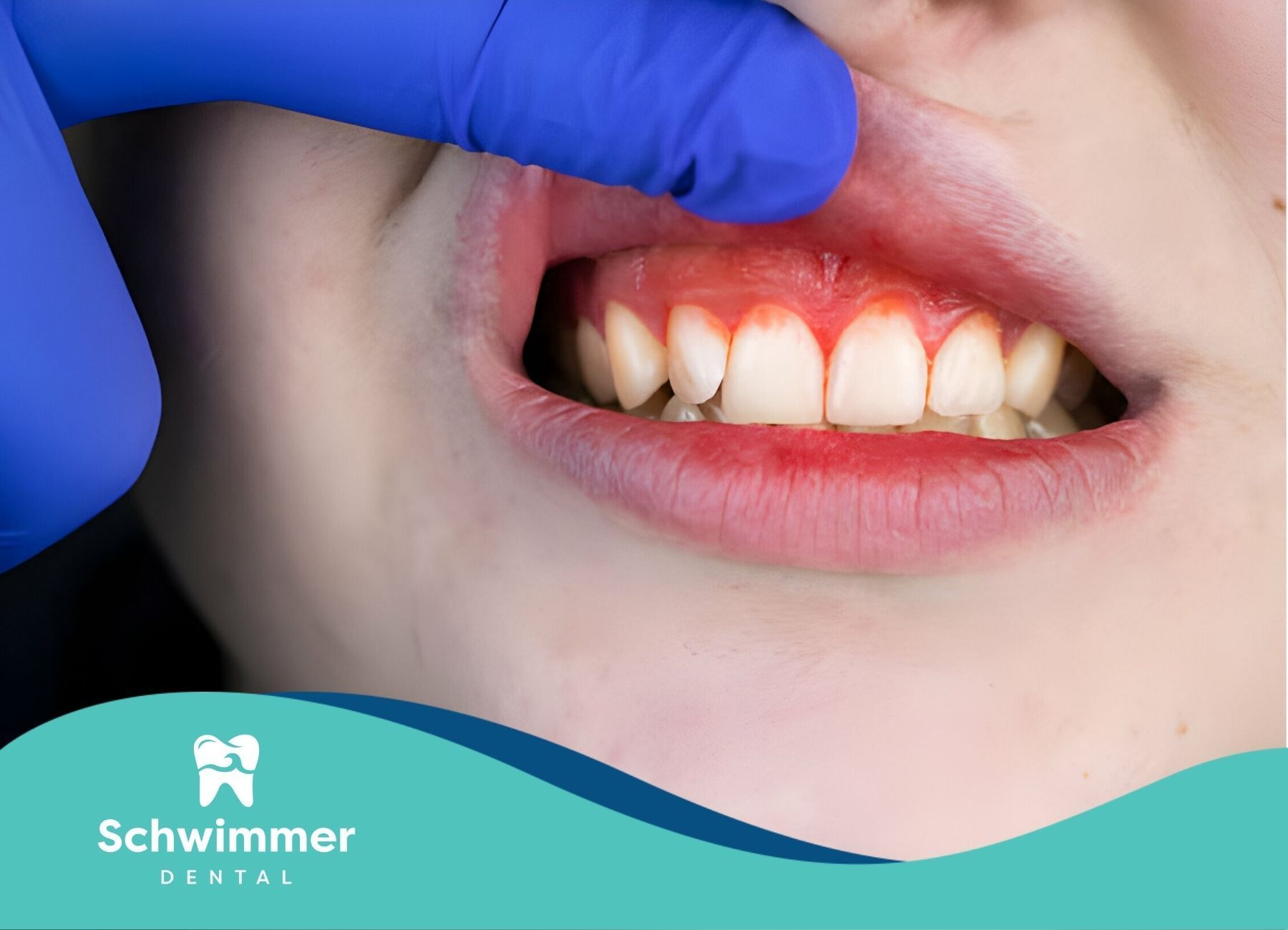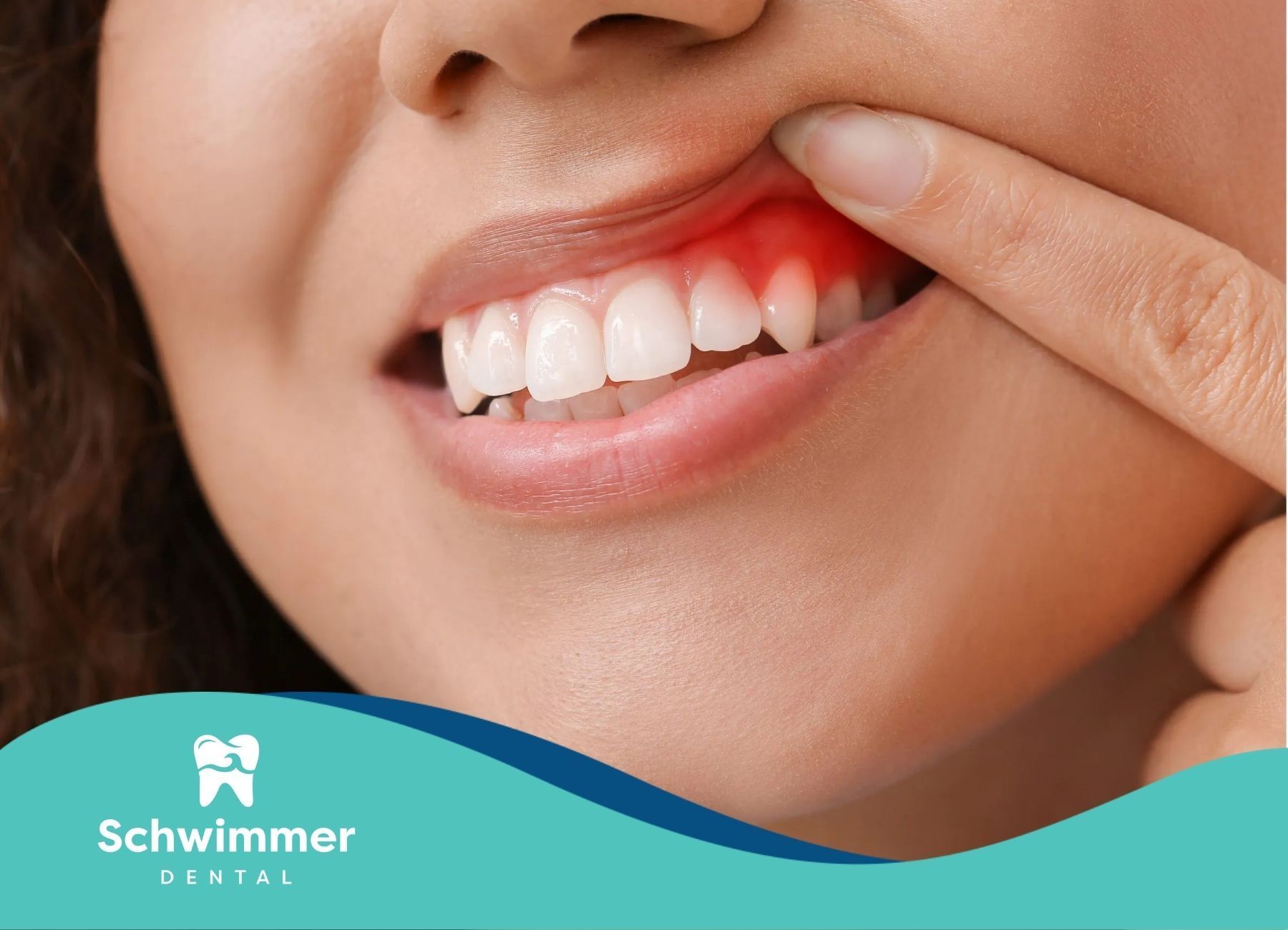Have an appointment? Complete the Intake Form
Restorative Dental Treatments: A Comprehensive Guide
Caring for your teeth is very important for a lovely smile and good health. If you have damaged teeth or need to fix your mouth, restorative dentistry can help. It provides different treatments and methods to solve dental issues. The goal of restorative dentistry is to improve how your teeth work and make your smile look even better.
Exploring the Basics of Restorative Dental Treatments
Restorative dental treatments include many procedures that help fix damaged or missing teeth. These treatments are important for keeping your teeth healthy. They also improve how your smile looks. This can make your life better.
From fixing a chipped tooth to replacing a missing one, restorative dentistry offers ways to help you feel good about your smile. By learning more about the types of restorative treatments, you can make better choices for your oral health.
Defining Restorative Dentistry and Its Importance
Restorative dentistry is finding, treating, and stopping dental problems affecting your teeth, gums, and the mouth's support structures. This type of dentistry differs from cosmetic dentistry, which mainly aims to improve your teeth' appearance. Restorative dentistry focuses on bringing back the health, function, and quality of your smile.
Restorative dentistry is important because it can handle many dental problems. It ranges from simple fillings for cavities to more complex work like dental implants. The goal is to fix damage, reduce pain, and stop issues from getting worse.
When dental problems are treated quickly and well, restorative dentistry helps keep your oral health in good shape. It supports the health of your natural teeth and the overall well-being of your mouth.
The Primary Goals of Restorative Dental Procedures
Restorative dental procedures focus on keeping your natural teeth as much as possible. Dentists try to save and fix a damaged tooth instead of pulling it out unless it is necessary. They use methods like dental fillings, crowns, and inlays. These help repair problems from tooth decay, fractures, or wear while keeping as much of the natural tooth as they can.
These procedures also work to prevent further damage and decay. When a dentist adds a filling or crown, it covers the damaged area. This stops bacteria from getting in and causing more tooth decay.
By focusing on prevention, restorative dental procedures help keep your teeth and gums healthy. This reduces the chance of needing more extensive dental work in the future.
Key Types of Restorative Dental Treatments
Restorative dentistry has many ways to treat different dental problems. Knowing about these treatments helps you talk to your dentist about what might work best for you.
Common treatments include dental implants, crowns and bridges, dentures, fillings, and root canal therapy. Each one fixes specific dental issues. This can be about replacing missing teeth or fixing damaged ones.
Restorative dentistry offers a range of solutions to restore your smile's health and function. To find the best dentists near you who can provide expert care and personalized treatment plans, consider scheduling a consultation. They can help you explore your options and achieve optimal oral health.
Dental Implants: A Permanent Solution for Missing Teeth
Dental implants are a great way to replace missing teeth. They look natural and last a long time. The procedure involves putting a small metal post, called a dental implant, into the jawbone through surgery. This implant works like a false tooth root. It provides a solid base for a dental crown, bridge, or denture.
Getting dental implants usually takes several steps and time to heal. After the implant connects to the jawbone, this process is known as osseointegration. It becomes a permanent part of your mouth. Dental implants provide strong support. This means you can bite, chew, and speak confidently.
Besides improving your smile, dental implants also keep your jawbone healthy. They help stop bone loss, which can happen when teeth are missing.
Dental Crowns and Bridges: Restoring Function and Aesthetics
Dental crowns and bridges are great treatments to fix teeth that are damaged or missing. A dental crown is a cap shaped like a tooth. It covers an existing tooth to make it stronger and look better. Crowns are used to help teeth that are weak because of decay or breaks.
A dental bridge helps replace one or more missing teeth. It has artificial teeth called pontics. These are attached to nearby natural teeth or dental implants. The bridge fills in the gap left by missing teeth. This helps you chew and speak better.
Both dental crowns and bridges are made just for you. They match the shape, size, and color of your natural teeth. This way, your smile looks natural and seamless.
Advantages of Opting for Restorative Dental Treatments
Choosing restorative dental treatments has many benefits for your oral health and overall well-being. When you deal with dental issues quickly and effectively, you can have a healthier and more comfortable smile. This can boost your confidence, too.
Restorative dentistry not only helps you chew better but also improves the look of your teeth. These lasting benefits can greatly enhance your quality of life.
Enhancing Oral Health and Functionality
Restorative dental treatments are very important for keeping your mouth healthy. They help fix problems like tooth decay, gum disease, and missing teeth. By fixing these issues, these treatments help prevent more serious problems and keep your mouth working well.
A big benefit of restorative dentistry is that it helps restore the full function of your teeth. If you have missing or damaged teeth, it can make chewing food harder, which may affect your digestion and nutrition.
By replacing missing teeth and fixing damaged ones, restorative treatments let you enjoy your favorite foods without pain or trouble. Restoring your teeth helps improve your oral health and makes you feel better overall.
Improving Smile Aesthetics and Self-Confidence
Restorative dentistry is mainly about making your teeth healthy and working well again. However, it also plays a big role in how your smile looks. Treatments can fix problems like tooth stains, chips, cracks, and gaps. This can really improve the beauty of your smile.
The change goes beyond just having a pretty smile. When you feel good about your teeth, it boosts your self-confidence and self-esteem. Restorative dentistry can help you feel proud of your smile, making it easier to show it to others.
You can choose services like teeth whitening, dental veneers, or a mix of treatments. Restoration dentistry offers ways to fix these beauty issues and give you a smile you will love to show off.
Conclusion
Restorative dental treatments are important. They help improve oral health and how your teeth work. They can also give you a great boost in self-confidence by making your smile look better. Knowing about restorative dentistry and its different options, like dental implants and crowns, gives people good solutions for their oral problems. When you choose these treatments, you can enjoy a healthier mouth and a more confident smile. If you are thinking about restorative dental procedures, talk to a professional. They can help you find the best options for your needs. Your journey to a brighter and healthier smile begins now.
At Schwimmer Dental, we offer a comprehensive range of restorative dentistry services in New Jersey to help you achieve a healthy and beautiful smile. From dental fillings and crowns to implants and bridges, our experienced team utilizes the latest techniques and technologies to restore your oral health and function. We prioritize patient comfort and strive to create a positive and relaxing experience for all our patients.
Frequently Asked Questions
What Makes Someone a Good Candidate for Restorative Dental Treatments?
General dentists suggest dental restorations for people who have health issues like tooth decay, tooth loss, or damaged teeth. Your dentist will create a treatment plan just for you. They will also give you instructions on how to care for your teeth properly after the treatment.
How Long Do Restorative Dental Treatments Typically Last?
The lifespan of dental restorations depends on the procedure you have and how well you take care of them. If you provide proper care, a dental restoration can last for a long time. It can help with the functionality of your mouth and give you a beautiful smile. The recovery time can also differ based on the treatment you choose.
Are Restorative Dental Treatments Painful?
Most restorative procedures use local anesthesia. This helps to keep discomfort low. Your dentist will talk about how to manage pain and give you care instructions after the procedure. If the restorative procedure is surgical, the recovery time could be a bit longer.
Need Assistance? We’re Here to Help
We are dedicated to enhancing your dental health and well-being.
We provide personalized dental care solutions for a confident, healthy smile.
Contact us today for Professional Dental Care.

Our caring staff will help you feel relaxed and comfortable in our state of the art office. We respect your time and pledge to deliver prompt service, backed by the latest knowledge, techniques, and technology.
Email: Office@schwimmerdental.com
Tel: (848) 294-2385
Fax: (732) 899-3347
Address: 1115 Arnold Ave,
Point Pleasant, NJ, 08742
Schwimmer Dental – Website by CWS


